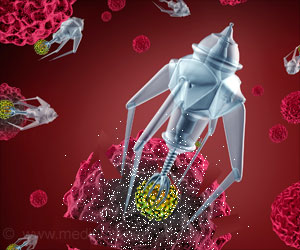Scientists have identified safety concerns with a decade-old experimental drug CX-5164 for high-risk neuroblastoma patients, thus, revealing a possible risk for late effects of treatment.

‘Scientists have identified safety concerns with a decade-old experimental drug CX-5164 for high-risk neuroblastoma patients, thus, revealing a possible risk for late effects of treatment.
’





CX-5461 is a small molecule that has been widely described as a first-in-human inhibitor of the enzyme RNA polymerase 1 and is studied for more than a decade. The Phase II clinical trials of CX-5461 are underway in adults with leukemia, lymphoma, and breast cancer. CX-5461 and Safety Concern
However, the study team found that the drug killed neuroblastoma tumor cells primarily by targeting and disrupting the activity of the different enzyme – topoisomerase II beta (TOP2β) rather than inhibiting RNA polymerase 1.
“Decades of study of an existing class of chemotherapy agents have shown that off-target drug interactions with TOP2β leave patients at risk for serious and life-threatening side effects such as acute myeloid leukemia or cardiotoxicity that emerge years later. The findings highlight a previously unappreciated safety concern with CX-5461,” says Paul Geeleher, Ph.D., St. Jude Department of Computational Biology. Thus, the study team identified safety concerns with this experimental drug that have implications for current clinical trials in adults.
“Patients enrolled in on-going CX-5461 phase II trials should be closely monitored for these late-emerging TOP2β-related adverse events,” noted the researchers.
Advertisement















